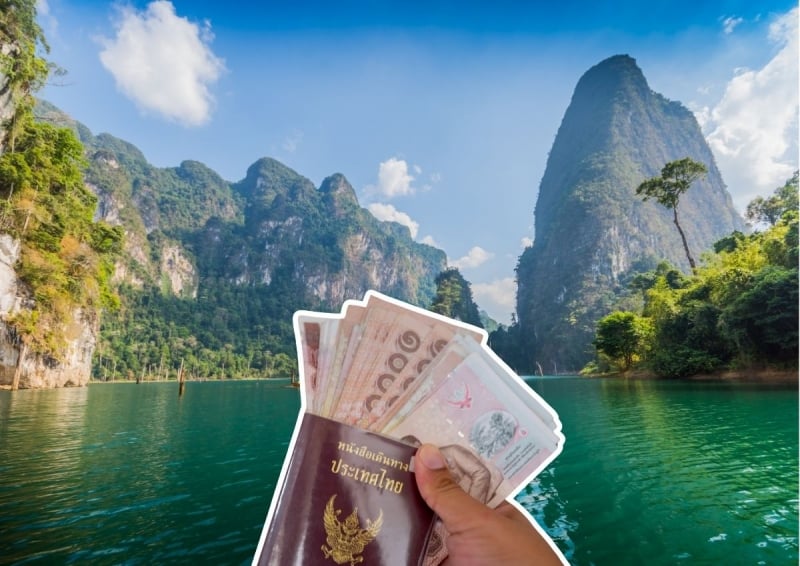Thailand, a beloved destination for budget travellers, is now facing a growing challenge: rising costs. The Thai baht’s recent surge to its highest value in over five years has made it more expensive for visitors to enjoy the country’s popular attractions and cuisine.
Also read: Duty-Free Closure in Thailand: Shifting Tourist Spending Focus
Thai baht’s surge impacts tourism spending

Image credit: danaibe12, dontree_m via Canva Pro
The price hike is due to the Federal Reserve’s decision to cut interest rates in the United States. As a result, the Thai baht has strengthened against the US dollar, putting pressure on Thailand’s central bank to follow suit. However, the central bank has been cautious about lowering interest rates because of economic uncertainties.
Now, the stronger baht has a direct impact on tourism spending. Travellers find that their money now doesn’t go as far as it used to, leading to reduced spending. According to the Tourism and Sports Minister of Thailand, the unfavourable exchange rates could hinder Thailand’s goal of reaching 3.5 trillion baht in tourism revenue for 2024.
Even staple Thai food is becoming more expensive
On 23 Sep 2024, the baht opened at 32.92 per US dollar, which is a significant increase that could possibly put off budget-conscious travellers. Even iconic Thai dishes like pad thai, once a cheap and delicious meal, now starts at 200 baht (S$7.91) in small restaurants. This price hike has definitely raised concerns about Thailand’s ability to maintain its reputation as a budget-friendly destination in today’s rising tourism economy.
But despite the increased costs, popular tourist spots like Phuket are expected to remain a tourist magnet due to the world-class experiences they offer. However, the overall rise in prices — around 10% for goods and services — is making budget travel less appealing.
Also read: Bali vs Phuket: Which Popular Southeast Asian Island Should You See First?
The future of the baht and its impact on tourism remains uncertain, and will highly depend on global economic trends and the central bank’s decisions. Analysts suggest that lowering interest rates could help support tourism and export. As Thailand faces the challenge of rising costs, budget-conscious traveller may need to start exploring other Southeast Asian destinations to save up a few bucks when travelling.





